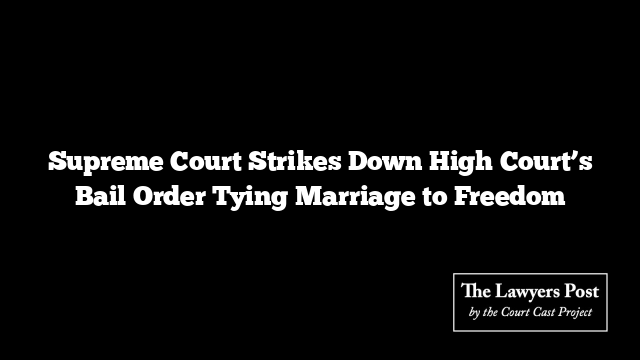In a move that drew a clear line between legal process and personal relationships, the Supreme Court has overturned a Jharkhand High Court order that had tied a husband’s anticipatory bail to a deeply personal condition: resume conjugal life with his estranged wife and “maintain her with dignity.”
The top court, through a bench of Justices Dipankar Datta and A.G. Masih, declared that such a condition had no legal anchor in Section 438(2) of the Criminal Procedure Code — the provision that outlines permissible conditions for pre-arrest bail.
“The spouses had already gone their separate ways,” the bench observed. “Forcing a return to conjugal life under the guise of a bail condition risks turning the courtroom into a stage for emotional warfare. It’s a recipe for fresh litigation.”
The appellant—booked under a range of serious charges, including cruelty (Section 498A), voluntary hurt (Section 323), causing miscarriage without consent (Section 313), attempted murder (Section 307), and provisions under the Dowry Prohibition Act—had approached the Jharkhand High Court for anticipatory bail. The High Court had granted relief, but not without strings: rejoin your wife, and maintain her with honour.
That stipulation, the Supreme Court held, was legally unsound and could muddy the waters further.
“What happens if a bail cancellation plea is filed later claiming the husband failed to meet the ‘dignity clause’? The court could be forced to resolve deeply personal, disputed facts in a proceeding where that’s not its purpose,” the bench remarked.
Recognising the judicial overreach, the Supreme Court allowed the appeal, set aside the condition, and sent the matter back to the High Court — but this time with clear instructions to judge the bail plea strictly on legal merit.
The ruling affirms a vital principle: personal relationships, no matter how strained, cannot be legislated from the bench.




